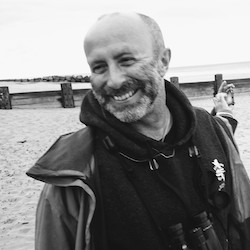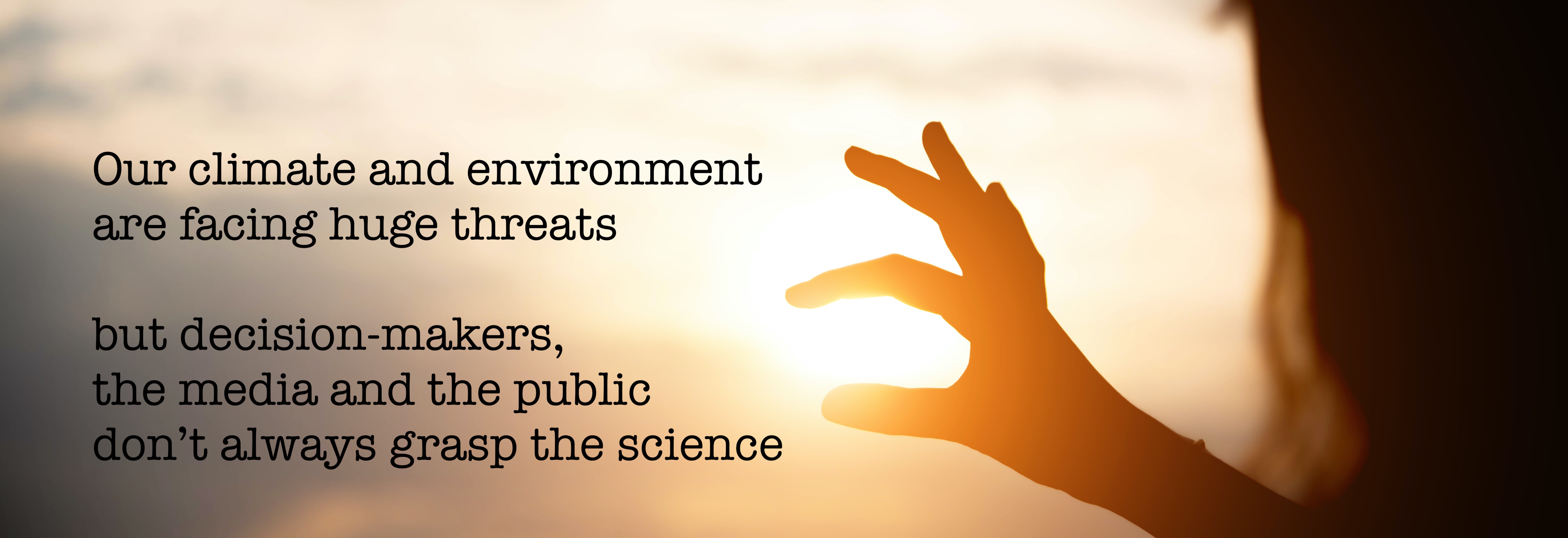
About
"The single biggest problem in communication is the illusion that it has take place"
George Bernard Shaw
Communication is inherent within research: for conferences, presentations, papers, engaging funders, creating social media, influencing decision-makers or reaching wider audiences.
However, science trains us to communicate in specific ways; often not the ways we would normally converse or share information with one another. Sometimes what we think we are saying is not always what people hear.
We believe that researchers and environmentalists are widely trusted and doing vital work for society, and our workshops help researchers be more effective in their roles by showing how to:
- draw upon psychology & social science to keep audiences listening
- design an effective narrative arc about you and your work
- ensure your key facts stick and are easier to grasp
- make you and your research area more relatable to people
- clarify, not dumb-down, important information
At a time when the work being done in environmental science is of critical importance, our participants gain useful tools and a replicable template for an array of different situations, and skills that increase the impact of them and their work.
As a result, in the last 13 years, the hundreds of researchers we’ve helped say their experience of talking about their work is so much better, that they are having much greater impact, it is helping their careers, and, importantly, it’s helping society to make important changes.
For over 13 years we have worked with some of the UK’s biggest science and environment institutions; training people in communication skills, press interviews, social media, and public engagement events. See recent clients. We've run, or taken part in, face-to-face and digital engagement with hundreds of thousands of public audiences from diverse backgrounds and cultures.
Why do this?
- Ensure that you and your work is recognised
- Reach diverse public audiences
- Communicate with decision-makers
- Communicate with colleagues
- Give better presentations
- Improve funding bids
- Talk to Press & Media
Communicating is at the heart of everything
As scientists or specialists, you communicate your research to others within your field via conferences, scientific papers and policy documents. Yet few would ever class themselves as a ‘communicator’.
Our workshops emphasise that public engagement is not just an altruistic endeavour; there are countless benefits to participants’ careers, to funding opportunities and to the impact they have on stakeholders.
Helping to improve presentations, papers and articles, we cover the basic of good science storytelling, effective language use, elevator pitches, narrative arcs, barriers to engagement and value systems. In short, gain the skills that help you and your work to be recognised and acted upon.
Within an academic context, communication often falls to the comms department, the public engagement department or a handful of enthusiastic individuals. Yet ALL researchers and specialists benefit from becoming better communicators. By better communicating your research, you increase your paper citations, you can better pitch your research to funding bodies and grant-givers, and crucially, your research will be better understood and acted upon by policymakers, decision makers and other stakeholders. On the occasion that a media agency picks up on your work or requires an expert statement, you will better poised to deal with the rigours of a media appearance or interview.
Why us?
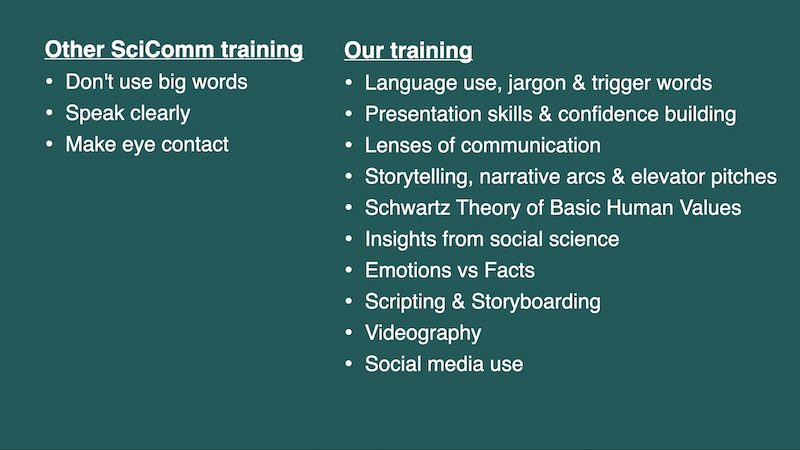
Don't just take our word for it ...

Finally we've also worked many times with 16-25 year-olds: we're proud that those same skills can help them find their voice about the future they face
Learn more
Our Team
Ian Rowlands believes that communication is key, and is a former Guardian journalist who is passionate about working with those who are tackling, or will have to deal with, the great environmental challenges of our time, whether it be scientists, activists or young people.
He worked in the environmental NGO sector for many years, but made his mark creating a number of influential large-scale public ocean festivals. Working with the creative community, arts performers, activists and BBC, and leading a team of 900 volunteers, together they reached a diverse audience of over 35,000 people about vital environmental issues.
He has also led on youth projects; helping 16-25 year olds run workshops, events and broadcasts, about ecology, sustainability, optimism, Nature and mental health.
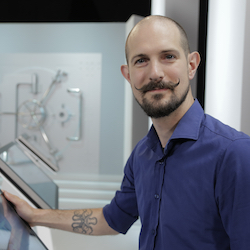
Dr Russell Arnott is a marine biologist, oceanographer, award-winning communicator and YouTuber, Russell is a director of Incredible Oceans - our sister company - an environment communication agency that helps others communicate better about the ocean, climate and environment to foster behaviour change in audiences.
He is a science communicator and TV presenter, represented by David Foster Management. He regularly performs at Cheltenham Science Festival, regional STEMFests, Big Bang Fairs, Elderflower Fields Festival, and The Science Show-Off. As a specialist with media experience he has worked with Sky News, Channel 5 Saturday Show.
He has a PhD from University of Bath on the application of marine physics to biological systems, he holds a combined-Masters in Oceanography at the University of Southampton, and completed PGCE in Secondary Science (Physics) at University of Sussex working as Head of Physics at a secondary sixth-form in London.
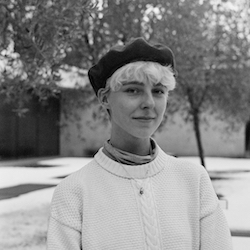
Xenia Dautzenberg leads on our projects with young people and, in addition, brings an acute creative sensibility to all our training workshops that involve video creation.
With a bachelor of arts in Creative Filmmaking from Screenology, Bristol, she helps trainees to develop, film and edit video projects. Based equally in Suffolk and Berlin, her skillset also encompasses photography, camera work, documentary production and digital drawing.
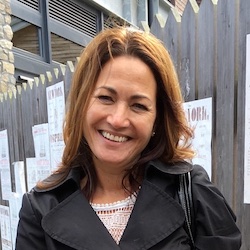
Gina Gow works on our client projects where the focus is on using creativity as a powerful learning tool in our training, as well as project managing some of our large scale events and activities.
With a degree in Business Studies from Oxford, she has worked in commercial and non-profit industries before specialising in communications within the environmental sector.
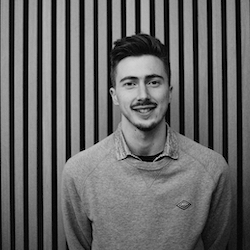
Josh Barker is our specialist for live broadcasts and digital streaming. He brings together a masterful command of process, a full complement of the technical equipment needed, as well as being adept at putting people at their ease and working with diverse teams on a varied portfolio of projects.
A Brighton based creative, he is used to working with live presenters, live videos, recorded videos, podcasts, digital and face-to-face studio settings.
Siren Calling is Community Interest Company 8505068 - we believe in the value of communicating about our environment.

